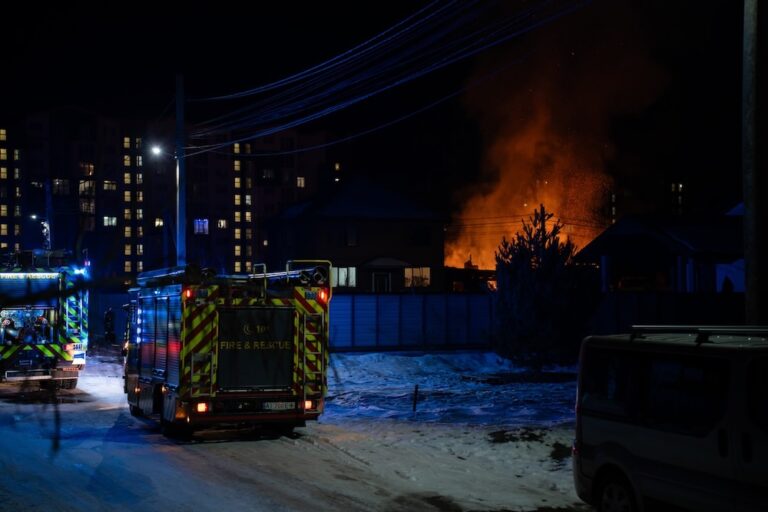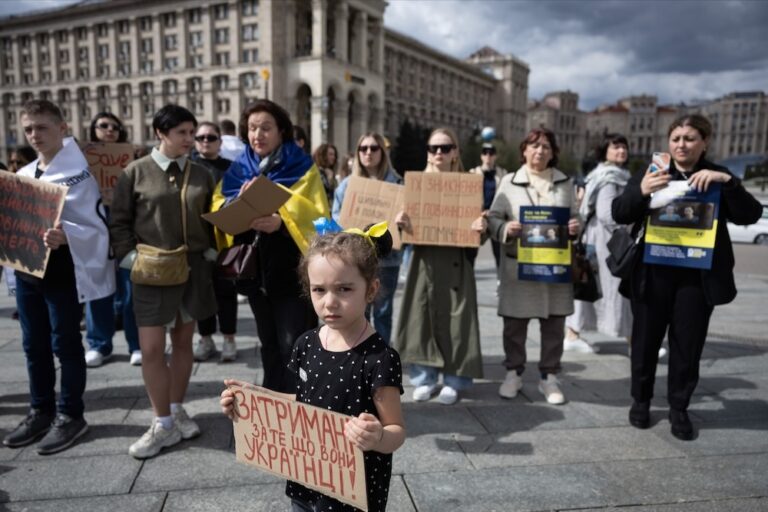(CJES/IFEX) – Criminal charges for “libel disseminated by a mass medium”, a violation under Article 129 of the Criminal Code of the Russian Federation, have been filed against Nikolai Sokolov, editor-in-chief of the newspaper “Fakty s Argumentami”. The libel charges were brought against the journalist on the basis of a statement made by Viktor Sokovykh, […]
(CJES/IFEX) – Criminal charges for “libel disseminated by a mass medium”, a violation under Article 129 of the Criminal Code of the Russian Federation, have been filed against Nikolai Sokolov, editor-in-chief of the newspaper “Fakty s Argumentami”.
The libel charges were brought against the journalist on the basis of a statement made by Viktor Sokovykh, mayor of the town of Elets, accusing the journalist of deliberate dissemination of false information damaging the mayor’s honor and dignity.
A probe into the case has shown that “Fakty s Argumentami” ran articles that the investigators believe to contain information harming Victor Sokovykh’s reputation in the period between September 2007 and November 2007. The names of the articles and dates of publication that led to the legal action against Sokolov are as follows: “Death Agony”, issue # 35, 6 September 2007; “Turnskin”, # 46, 22 July 2007, and “Hunt! Hunt is going on”, # 47, 29 July 2007.
Linguistic tests performed on the articles, as required under Russian law, showed that the articles characterized Sokovykh in a negative light, but did not confirm that the journalist deliberately disseminated false information about the mayor.
Sokolov has demanded that a different linguistic test be performed outside Elets, fearing the bias of the Elets experts. He flatly denies the results of the tests performed in Elets, saying that the information he disseminated was an opinion, not a statement of a fact. The journalist believes the criminal charges are the mayor’s vengeance for several articles by the journalist published over the prior few years. According to the journalist, there is not a single independent newspaper left in the Lipetsk region, the mayor has been in power for 14 years and no one dares criticize him.
If the journalist is convicted of the charges he will be sentenced to a fine, corrective labour, or three to six months in jail. Criminal liability occurs in the event of deliberate dissemination of false information, i.e., if the author knew that the information was false, but still disseminated it. The victim in this case can file a civil lawsuit seeking a refutation of the information disseminated, the publication of a response in the paper, compensation for moral damages, or a court decision stating that the information disseminated is false.
Under the Russian legislation, if a journalist can prove that he disseminated false information, but did not know that the information was false, he will not face criminal prosecution, but will only face a civil lawsuit.
If a journalist disseminated information that was true but damaging to a person or legal entity’s reputation, he will not face any liability at all. However, the victim in this case will have a right to have his response published in the same media publication that published the information about him.
Under Russian law, people are entitled to be presumed innocent, which means that the mayor and the party that initiated the criminal case are required to prove that the information disseminated is false. Thus, the burden of proof rests with the mayor. Otherwise, the criminal prosecution of the journalist will be illegal and will be seen as aimed at impeding his professional activities.
In his articles the author criticised the mayor’s activities, commenting on their implications for the public and their legality. The journalist raised questions about corruption and bureaucracy among the local authorities, a conflict between the mayor and a local entrepreneur and other matters.
CJES believes the criminal case against the editor-in-chief of the paper “Fakty s Argumentami” is an attempt to punish the journalist, who has fallen into disfavor with the local authorities.
Punishment under criminal law is an excessive measure and is not an appropriate method of protecting the reputation of the mayor. This case should be tried under civil, not criminal law, and the articles should be evaluated by independent experts.
CJES wants abolished the articles of the Criminal Code that punish journalists for libel (Article 129), insult (Article 130), and insulting an authority (Article 319). Five journalists are currently serving prison sentences for these crimes in Russia.
CJES is calling on the Russian authorities to change the criminal legislation and decriminalize defamation.


